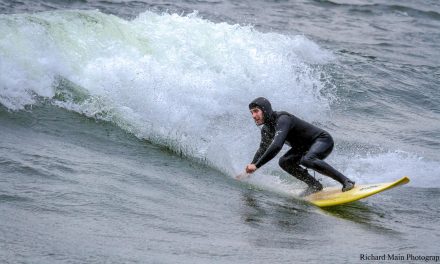By Kelsey Raynard
It was the best of times, it was the worst of times, it was the age of wisdom, it was the age of foolishness, it was the epoch of belief, it was the epoch of incredulity, it was the season of Light, it was the season of Darkness, it was the spring of hope, it was the winter of despair, we had everything before us, we had nothing before us, we were all going direct to Heaven, we were all going direct the other way.
– Charles Dickens, A Tale of Two Cities
Thunder Bay’s North Core Street Scape Project is well underway; the sewers and watermains along Red River Road and Cumberland Street are being replaced, and with this replacement comes the beautification of Port Arthur’s downtown core. The sidewalks are being redesigned to be more pedestrian-friendly and plaza-like, there will be designated areas for patio seating, and decorative greenery features will be installed. This general facelift will hopefully support more tourist activity in this area of business, and the overall revitalization is part of the Community Improvement Plan launched by the city in 2021.
However, you’ll only need to walk a few more kilometres past these pedestrian-friendly sidewalks to see the tale of another city: the growing tent encampments along McVicar Creek and at Marina Park.
The City of Thunder Bay and Community Partners’ Encampment Response Protocol outlines the municipalities’ response to “tent cities”; in this document, it is estimated that the annual cost to take a human-rights based approach to these encampments is approximately $20,000. Contrast this with the current phase of the downtown core revitalization, which will cost approximately $13 million. While the province announced $9 million in local funding to address transitional housing needs in April, government funding is slow to come through, and even slower to translate into actual development.
The issue of poverty and homelessness in Thunder Bay is complex, poorly understood, and, most recently, inaccurately represented by our elected officials—just look at the mayor’s comments about safe drug supplies in the city earlier this year. Despite his immediate retraction, the comments made about Thunder Bay drawing “hundreds of thousands” of people here to party in tents with free drugs are harmful, incorrect, and unfortunately reflects what some people here genuinely think.
If the city does not have the funds to designate towards meaningfully addressing these encampments, perhaps they could invest in an awareness campaign educating the public about the reality of these encampments and humanizing the real people who live there?
Two things can be true at the same time; small businesses and the local economy will benefit from a revitalized downtown core, and people experiencing homelessness in Thunder Bay need greater support to exit this cycle and eliminate tent cities forever.
Despite what it may look like, this is not a tale of two cities; this is not an us-versus-them issue. We are one city. We are all impacted by the growing encampments. We should all have a vested interest in the beautification of our city, and what is more beautiful than a city rallying together to support and house all the people who live there?















